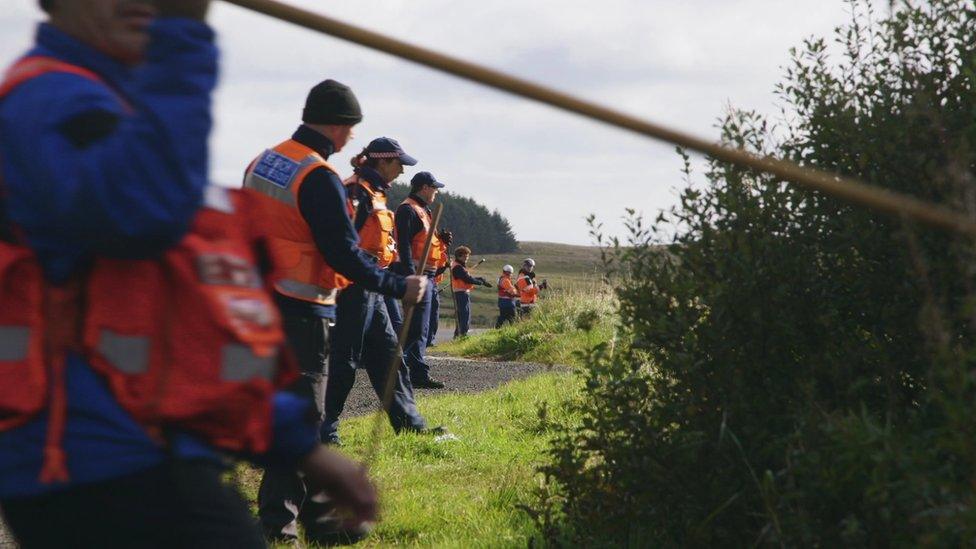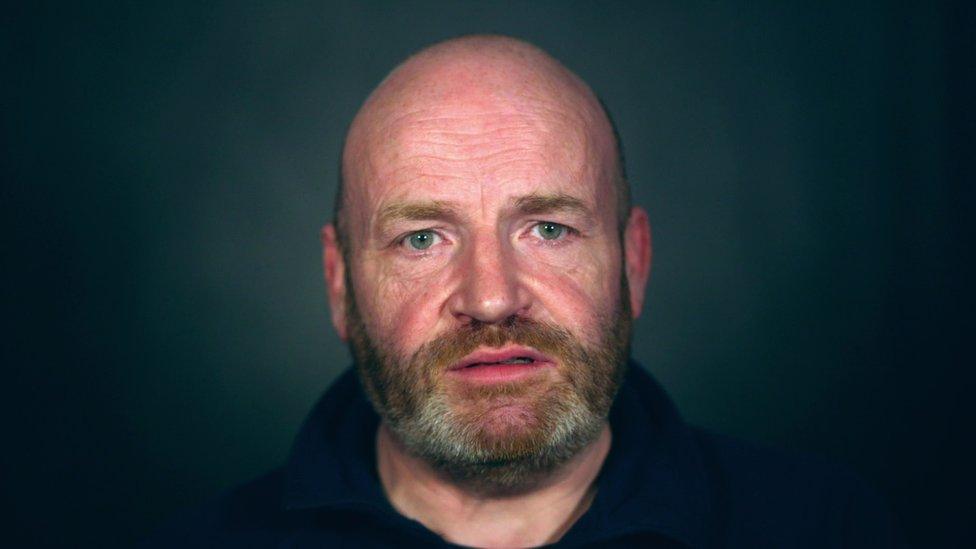The Search: The people who look for the missing
- Published
The woman who searches for the living in memory of her son
When Margaret Elliott came home to discover her teenage son, James, was missing, it set in motion a chain of events that changed her life forever.
James' body was eventually found after an extensive search.
It is believed he got into difficulties while trying to get a dog out of a river.
The experience of looking for him and the support she received eventually led Margaret to join the organisation, the Community Rescue Service (CRS).
They helped look for James.
Vulnerable people
Every year, many hundreds of people go missing in Northern Ireland.
Often, they are among the most vulnerable members of society - the young, the elderly and those struggling with mental health issues.

Searchers are trained to work in all kinds of terrain
When police receive a report of a high risk disappearance, they can call in the CRS.
It is an organisation made up of 130 volunteers, who go through intensive training to learn how to search in all terrains.
In 2018 alone, they took part in more than 400 searches.
Members of the CRS are often asked why they do it.
Why do they give up their free time to search in often inaccessible areas, sometimes for weeks at a time?
Margaret joined the CRS after James' death nine years ago.
The 14 year old was a pupil at Dalriada Grammar School and a talented footballer with Linfield's youth section.
She believes that looking for missing people helps her to cope with what happened to her son.
He is thought to have jumped into the River Bush to try and rescue the family's dog.

Alistair Warke has been a volunteer for two years
"When my son, James, went into the river, there was a lot of emergency services there and the Community Rescue Service was one of them," said Margaret.
"They allowed us to actually search with them and they looked after us and basically said they would not leave until they found James."
'Throwing sticks for the dog'
Margaret said she realised something was wrong that day when she got home from work.
"I always shouted 'mummy's home' and usually everybody comes to meet me and two dogs come to greet me. No children.
"I didn't have time to take my jacket off I got a knock at the door and it was Ryan saying that James was in the river and I just dashed out to try and find him.
"I think he was throwing sticks for the dogs and one of the dogs got into trouble and so he went in after it and just didn't come out."
Giving back
Margaret said the support she received from the CRS and the hundreds of people who supported her was the reason she joined.
"How do you pay back all the people who helped search, who fed us, who sent cards?
"You know hundreds, hundreds of people did that for us and it is the only way to pay them back."
Alistair Warke, who has been a volunteer for two years, said it was not unusual for CRS members to have direct experience of trauma and that volunteering helped them to make sense of it.
"The background to a lot of our volunteers, they have some connection, whether personally or through their families and I think that gives them an insight into just where people might be at the time we are looking for them - you know, where they are in their minds.
"It's a lonely place to be, there is so much need out there.
"Probably the ones that I would have a personal feeling about are the folk who are vulnerable, those who contemplate taking their own lives, because it is a position that a lot of people find themselves in - a position that I may well have found myself in at one stage in my life.
"I would be determined that we would do our utmost either to prevent them from harming themselves or finding them and bringing themselves back to their families."